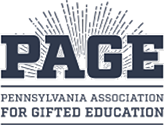Acceleration: The First Intervention for Gifted Students
Acceleration is the best-researched, yet most under-utilized intervention for gifted students. It should be the first intervention for gifted students: first accelerate, and then enrich (VanTassel-Baska, 2016). This strong statement is based on over 60 years of research supporting acceleration as an option for gifted students. Much of that research is described in the two-volume book, A Nation Empowered, which gathers the research on acceleration into one place and presents it in a user-friendly fashion. Another excellent resource on acceleration is the Acceleration Institute website, which provides information tailored to parents, teachers, educators, and policymakers.
The whole reason to consider acceleration is to help students to be more challenged in school. Imagine how frustrating it is for students to walk into school on the first day and realize that they already know the majority of the material they will be studying all year in that class. How discouraging! Can we realistically expect young students to stay engaged and interested in school if they already know most of what the teachers will be teaching? As a society, although we seem somewhat afraid of acceleration, we should be reassured by research demonstrating that gifted students who are accelerated (either by skipping a grade or by moving ahead in a particular subject) benefit from the additional challenge and intellectual stimulation. The opportunities provided by rigorous courses taught at an advanced level provide intellectual stimulation and teach “habits of mind” (such as persistence, handling failure, and setting high standards for oneself) that will serve students well throughout life. No educational option for gifted students has the research support that academic acceleration has. Acceleration works. Acceleration is an effective method for challenging gifted students. We should be even more reassured by the longitudinal research findings: Gifted students who are accelerated tend to perform better in school over the long term, achieve at higher levels, pursue graduate degrees more often, secure more prestigious jobs, and earn higher pay. These positive findings are evident for many years after the acceleration took place.
A major concern people seem to have when thinking about acceleration for gifted students is the impact on socialization; if students are advanced to match their academic abilities, will they be put into a situation well beyond their years socially? The research tells us that there is typically only a small impact of acceleration on social development, and that impact is generally in a positive direction. Said a different way, gifted students typically do not experience negative social results if they are moved up a grade or advanced in a specific subject.
Of course, we would like to guarantee success both academically and socially for all students considered for acceleration. The best way to do that is to weigh the options and carefully consider all aspects of a student’s development (academic, social, physical, psychological, etc.). One of the tools helpful in making this decision is the Iowa Acceleration Scale, designed to help educators and families consider all of the important factors about a grade skip. Other information gathered via above-level testing can help inform decisions about subject acceleration. It is important to mention that acceleration doesn’t come only in the form of grade-skipping; there are actually 20 different forms of acceleration. That means that we can truly tailor these decisions to benefit individual gifted students, and that helps ensure their success.
If you are interested in being an advocate for acceleration, consider starting with the information found at the Acceleration Institute website. Don’t miss the PowerPoint presentation on acceleration, which you can download and share. If you’re ready to influence policy at the local, state, or national level, check out the Guidelines for Developing an Academic Acceleration Policy. We have the research and the tools to help us make good decisions about implementing acceleration for academically talented students.
Contributed by Dr. Ann Lupkowski-Shoplik, Administrator, Acceleration Institute and Research, Belin-Blank Center, University of Iowa.
References
Assouline, S. G., VanTassel-Baska, J., Lupkowski-Shoplik, A., & Colangelo, N. (2016, November). Acceleration policy and the talent search model: Using evidence to guide policy. Presented at the annual conference of the National Association for Gifted Children, Orlando, FL.
The whole Acceleration Institute website is devoted to acceleration (www.accelerationinstitute.org).
Blog Hops:
http://www.hoagiesgifted.org/blog_hop_acceleration_2.htm and
http://www.hoagiesgifted.org/blog_hop_acceleration.htm
Also see: http://www.accelerationinstitute.org/News.aspx
Early entrance to kindergarten: http://www.accelerationinstitute.org/Resources/kindergarten.aspx
Early entrance to college: http://www.accelerationinstitute.org/Resources/early_college.aspx
More Hoagies: http://www.hoagiesgifted.org/acceleration.htm
Davidson institute: http://www.davidsongifted.org/Search-Database/topic/105164/entryType/1#cat102125
And even Wikipedia! https://en.wikipedia.org/wiki/Academic_acceleration
Nation Empowered is the new (2015) publication on all things acceleration. www.nationempowered.org
Developing Academic Acceleration Policies: Whole Grade, Early Entrance & Single Subject: http://www.accelerationinstitute.org/resources/policy_guidelines/

